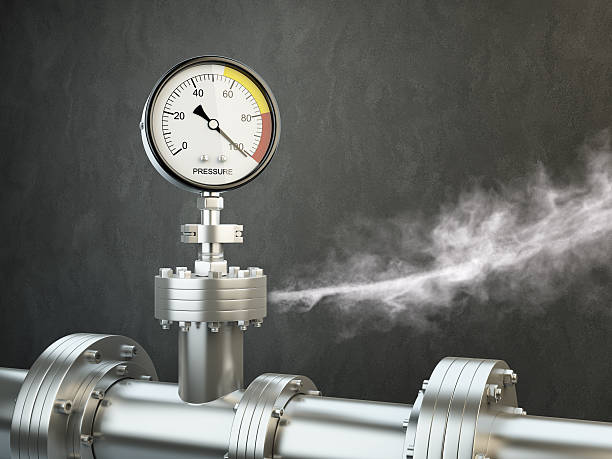Gas leaks can be extremely dangerous so catching them early on and having them fixed as soon as possible is vital to ensure the safety of you and your family. Safe gas and plumbing are essential in keeping your home safe and livable.
There are several signs that you may have a gas leak in your home and learning to detect them can help prevent disaster.
A rotten egg smell can be a sign that you have a gas leak. Companies add odourants to natural gas to make it detectable as in its natural state it is odourless, which makes it difficult to detect. If you notice a sulphurous smell, you may want to call out an engineer to check everything is in order.
The stronger this smell, the more likely it is that you have a leak. Some old pipes and appliances may produce a slight smell when turned on but anything that is persistent and noticeable should be addressed.
Hissing sounds from pipes may also indicate a gas leak. This can be a sign of a larger gas leak causing build-up in pipes and can be dangerous if near an open flame.
Checking your pipes and appliances regularly and listening for any abnormal hissing sounds is a good way to catch a leak as soon as possible.
Air bubbles present in outdoor collections of water such as puddles, muddy and swampy areas of your garden and in the grass can be a sign that a pipe has burst under the ground and is leaking gas outside your house.
The gas travels up through the ground and causes bubbles, so if you notice this it is best to have it checked out.
If you notice your gas meter reading has gone up with no explanation, it can be a sign that there is a leak as the gas will be escaping and causing an increase in usage.
There are times of the year when your gas usage will be higher anyway, but if you notice it has gone up outside of these times or it has quickly increased, it can be a sign of a leak.
Dead plants both inside and outside your home can indicate a leak as the plants will absorb the gas instead of oxygen, causing poisoning. If you usually take good care of your plants and have noticed them deteriorating without explanation, it may be a sign to call an engineer.
If you have begun showing symptoms of gas poisoning, it means that you have likely been exposed to a gas leak for a prolonged period of time. Symptoms such as headaches, dizziness, nausea and fatigue are all signs of low-level gas poisoning and you should see a doctor as soon as possible.
If you experience severe headaches, issues with your memory, fall unconscious, have trouble breathing and are finding it difficult to concentrate, it can be a sign you have a severe leak and have been exposed to high levels of gas, which can be very dangerous.
You should seek medical advice immediately and have your home checked for leaks.

